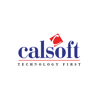Welcome Back to My DevOps Journey!
Hello everyone! Welcome to Day 4 of my 30-day DevOps journey. Today, I'll be sharing insights from section 6 of the "DevOps Beginners to Advanced with Projects" course by Imran Teli. This section covers the essentials of variables, JSON, and YAML, which are crucial for managing configurations and data in DevOps environments.
Understanding Variables in DevOps
What are Variables?
Variables are fundamental in programming and scripting, allowing you to store data that can be referenced and manipulated throughout your code. In DevOps, variables are used extensively in scripts and configuration files to ensure flexibility and reusability.
Using Variables in Shell Scripts:-
- Defining Variables:
NAME="Kanav"
- Accessing Variables:
echo "Hello, $NAME!"
- Environment Variables:
Exporting a variable makes it available to child processes.
bash
export PATH=$PATH:/new/path
-> JSON in DevOps
What is JSON?
JSON (JavaScript Object Notation) is a lightweight data-interchange format that is easy for humans to read and write, and easy for machines to parse and generate. JSON is widely used in APIs, configuration files, and data storage.
Key Features of JSON
Data Representation: JSON represents data as key-value pairs.
Readability: JSON is easy to read and understand.
Language Independence: JSON is language-independent but uses conventions that are familiar to programmers of the C family of languages.
JSON Syntax
- Objects:
{
"name": "Kanav",
"age": 25,
"skills": ["DevOps", "Cloud", "Automation"]
}
- Arrays:
[
{"name": "Kanav", "age": 25},
{"name": "Alex", "age": 30}
]
YAML in DevOps
What is YAML?
YAML (YAML Ain't Markup Language) is a human-readable data serialization format often used for configuration files and data exchange between languages with different data structures. YAML is designed to be easy to read and write.
Key Features of YAML
Simplicity: YAML syntax is simple and easy to read.
Data Serialization: YAML is used for serializing data to a portable format.
Hierarchy: YAML supports hierarchical data structures.
YAML Syntax
Scalars:
_ name: Kanav
age: 25_-
Lists
_skills:- DevOps
- Cloud
- Automation_
-
Dictionaries:
_ employee:
name: Kanav
age: 25
skills:- DevOps
- Cloud
- Automation_
My Learning Experience
Exploring variables, JSON, and YAML has been incredibly valuable. These tools are foundational for managing configurations, data interchange, and automation in DevOps environments. Mastering these concepts enhances the flexibility and efficiency of your DevOps workflows.
What's Next?
Tomorrow, I'll dive into VProfile Project Setup Manual & Automated Stay tuned for more exciting insights!
Connect with Me
Feel free to connect with me on LinkedIn for more updates and to join the conversation. Let's learn and grow together in this exciting field of DevOps!







Top comments (0)